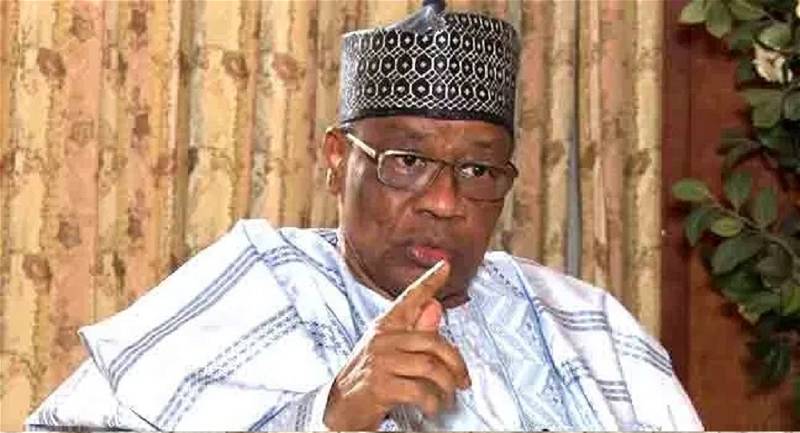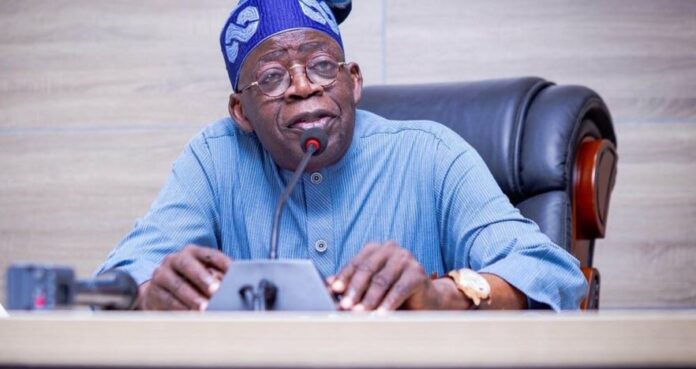Tinubu, who was represented by the Director of Media and Publicity of the APC Presidential Campaign Council, Bayo Onanuga, noted that “discerning critics” saw it as a grand plan by Babangida to become civilian president.
By Jeffrey Agbo
Presidential candidate of the All Progressives Congress, Bola Tinubu, on Tuesday, said critics believed the transition programme initiated by General Ibrahim Babangida (retd) was a plan to see the military ruler succeed himself as civilian president.
Babangida announced that he was “stepping aside” following the annulment of June 12, 1993 presidential election. An interim national government was formed and Ernest Shonekan made head on August 27, 1993.
The interim government, however, was short-lived as it was toppled by late General Sani Abacha on November 17, 1993.
Tinubu said at the public presentation of a book titled, “Nigeria’s Aborted 3rd Republic and the June 12 Debacle: Reporters’ Account” in Abuja that the interim government was designed to fail from the outset.

READ ALSO:
Obi, Tinubu, Atiku, 15 others make INEC presidential list
Tinubu, who was represented by the Director of Media and Publicity of the APC Presidential Campaign Council, Bayo Onanuga, noted that “discerning critics” saw it as a grand plan by Babangida to become civilian president.
He said, “The Third Republic was not expected to last long. Indeed of all our nation’s republics, it was the shortest: it began in January 1992 following the election of state governors in December 1991. It ended on November 17, 1993 with the Abacha coup against the Interim Government of Ernest Shonekan. This happened some five months after the annulment of the 12 June, 1993 election, won clearly by Moshood Kashimawo Abiola.”
“The entire transition programme of the military administration of the time, according to discerning critics, was designed to fail. It was, they said, meant to make then military president Ibrahim Babangida succeed himself as a civilian president,” Tinubu added.
A statement by the National Chairman Emeritus of the National Association of Political Correspondents, Dr. Emeka Nwosu, said the book offers a deep historical insight into the character and content of the transition process and the web of conspiracies that were deployed by key political actors in the military and their civilian collaborators to scuttle the June 12 election.













